MercoPress. South Atlantic News Agency
Brazil
-
Friday, October 3rd 2014 - 07:53 UTC
Latest poll shows Dilma winning the run off with seven point margin

Brazilian President Dilma Rousseff has extended her lead over environmentalist Marina Silva ahead of Sunday's Oct. 5 presidential election and would win a likely second-round runoff, a new poll showed on Thursday.
-
Friday, October 3rd 2014 - 07:36 UTC
Brazil private sector wants to help Argentina in the dispute with 'holdouts'

According to Argentina's leading and most influential financial newspaper, Ambito Financiero, Brazil, via the private sector could come to the rescue of Argentina in its ongoing dispute with the speculative funds in the New York court presided by Judge Thomas Griesa.
-
Thursday, October 2nd 2014 - 07:39 UTC
Dilma and Marina fighting for the religious vote, one fifth of the Brazilian electorate
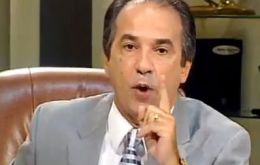
Brazil's rapid religious transformation is having an impact on the country's tight presidential race, where abortion and gay marriage have emerged as hot issues and Pentecostal televangelists are political power brokers.
-
Tuesday, September 30th 2014 - 04:55 UTC
Brazil will give exporters 3% tax refunds to help struggling businesses
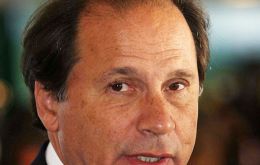
The Brazilian government will offer tax rebates for exporters beginning in October, Finance Minister Guido Mantega said on Monday, in the latest measure to help struggling businesses just days ahead of a presidential election.
-
Tuesday, September 30th 2014 - 04:40 UTC
Brazils' Bovespa and Real plunge as Dilma climbs in polls with less than a week to election

Brazilian financial markets took a beating on Monday after polls showed President Dilma Rousseff pulling past challenger Marina Silva ahead of Sunday's election. The Brazilian currency closed at its weakest level since December 2008 while the benchmark Bovespa stock index notched its biggest one-day loss in over three years.
-
Tuesday, September 30th 2014 - 01:15 UTC
Brazil suspends Vietnam pangasius import licenses because of sanitary reasons
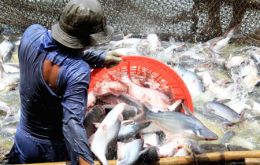
The temporary ban imposed by the Brazilian government on Vietnamese pangasius (Pangasius spp.) imports because of sanitary reasons and lack of phyto-sanitary controls, represents a great opportunity to increase Argentine hake (Merluccius hubbsi) shipments to the leading Mercosur partner.
-
Monday, September 29th 2014 - 09:16 UTC
Rousseff pledges media regulation (but not content) if re-elected this week

Brazilian president Dilma Rousseff, seeking re-election next week, says she will pursue media regulation if she returns for a second term, seeking to boost pluralism without influencing editorial content, according to media reports.
-
Monday, September 29th 2014 - 08:47 UTC
Opening the economy “would be a disaster for Brazilian industry” states Rousseff minister
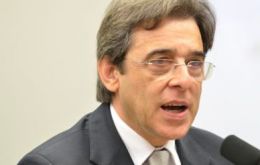
Anticipating what could be policy under a second government of President Dilma Rousseff, her Trade Minister Mauro Borges told Brazilian daily Folha do Sao Paulo that opening the country to more foreign trade would be a “disaster for Brazilian industry” and lead to the “mexicanization” of the economy, in reference to the light assembly factories known as “maquiladoras” that dominate Mexico’s non-oil exports.
-
Saturday, September 27th 2014 - 09:08 UTC
Relief for Dilma: unemployment rate in August remained at 5%
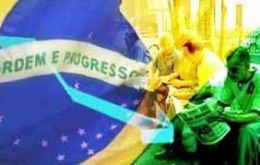
Brazil's jobless rate rose in August to its highest in six months despite stronger job creation, adding to signs that the economic recession is eroding a robust labor market. The non-seasonally adjusted jobless rate stood at 5.0 percent in August, up from 4.9% in July, statistics agency IBGE announced.
-
Saturday, September 27th 2014 - 06:34 UTC
Marina Silva pledges to de-politicize regulatory agencies and state corporations
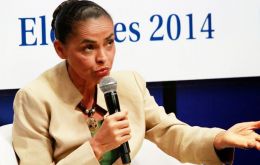
Brazilian presidential candidate Marina Silva vowed to de-politicize regulatory agencies that she says do more to win favor with government allies than ensure fair and efficient markets in Latin America's biggest economy.
